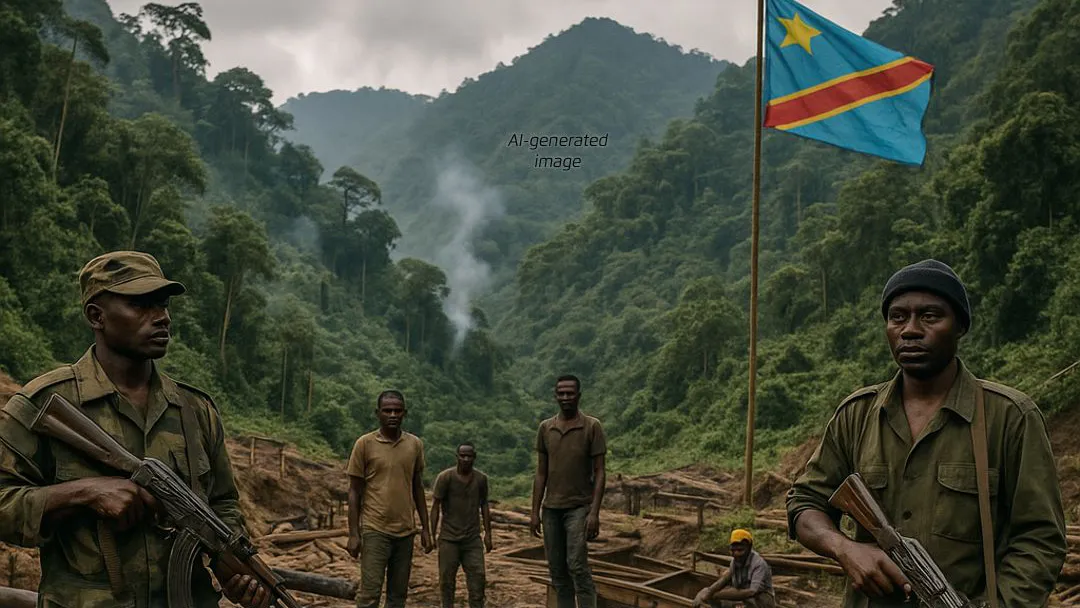M23 Rebels Deny Gold Theft Allegations from Twangiza Mine in Eastern DRC

Tensions rise in eastern Congo as Twangiza Mining accuses M23 rebels of gold theft, deepening the conflict over the region’s mineral wealth and stability.
The ongoing conflict over eastern Congo’s vast mineral wealth has deepened following a new dispute between Twangiza Mining and the M23 rebel movement, which has denied allegations of gold theft at the Twangiza Mine in South Kivu. The company accused M23 fighters of stealing up to 500 kilograms of gold and using Rwandan technicians to access geological data and resume covert mining operations. In response, M23’s leader Corneille Nangaa dismissed the accusations as baseless, asserting that the site is non-operational and that only local artisanal miners are currently working in the area.
The Twangiza concession, once a productive industrial gold mine, has been inactive since falling under rebel control earlier in 2025. Twangiza Mining claims to have suffered losses exceeding 100 kilograms of gold per month since May, along with US$5 million in stolen equipment, alleging systematic looting and the exploitation of existing mine infrastructure. The situation escalated further when a drone strike on October 15 destroyed the site’s power facilities, halting any potential production. Responsibility for the strike remains unconfirmed, and Congo’s central government has yet to issue an official statement on the allegations.
M23’s denial comes amid growing scrutiny of the group’s control over key mining areas in the eastern Democratic Republic of Congo (DRC), where multiple armed factions continue to operate. According to recent UN reports, numerous rebel groups collect illegal taxes and levies from artisanal miners and local traders, generating millions of dollars each year to finance ongoing insurgencies. This illicit trade in gold, tin, tungsten, and tantalum has long been linked to regional instability and human rights abuses, complicating international efforts to regulate and trace conflict minerals from the Great Lakes region.
In response to the situation, Twangiza Mining has declared force majeure and is preparing to file an international arbitration complaint, seeking legal redress for the alleged seizure of its assets. The company’s predicament highlights the growing risks facing investors in the DRC’s mining sector, where deteriorating security conditions continue to undermine lawful production and revenue flows.
This controversy once again underscores the persistent governance and transparency challenges in eastern Congo’s resource sector. The continued presence of armed groups in mining zones threatens both legitimate economic development and the DRC’s ambitions to formalise its minerals trade. Strengthening state oversight, enforcing traceability mechanisms, and improving local security cooperation remain essential to breaking the cycle of resource-driven conflict that has defined the region for decades.
Mini-Glossary
- Artisanal Miners: Small-scale miners who use basic tools and methods to extract minerals, often outside formal legal frameworks.
- Force Majeure: A contractual clause that suspends obligations when unforeseen events, such as conflict or natural disasters, prevent normal operations.
- Arbitration Complaint: A formal legal claim filed through an international tribunal to resolve disputes between companies and governments or other entities.
- Conflict Minerals: Resources mined in conditions of armed conflict and human rights abuse, such as gold, tin, tungsten, and tantalum.
- Illicit Mineral Trade: The unregulated buying, selling, or smuggling of minerals that bypasses legal taxation and state oversight.
- Geological Data: Scientific information about rock formations and mineral deposits, crucial for locating and evaluating mining prospects.
